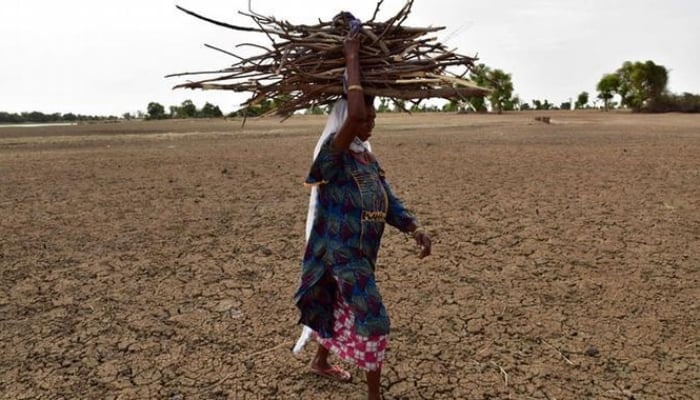Pakistan can face 'severe impact' of climate change: ADB
Zhukov says regional countries must work together to cut greenhouse gas emissions for the good of all
Stressing the need for collective and urgent actions, Asian Development Bank’s Director General for Central and West Asia Yevgeniy Zhukov on Friday said that climate change is likely to have a severe impact on the CAREC region — which includes Central Asia, Mongolia, Pakistan, China, and the South Caucasus.
Addressing a press conference while launching a study at the sidelines of the 56th ADB annual meeting, Zhukov urged Central and West Asia and its neighbouring countries to address the increasingly severe impacts of climate change that could lead to water scarcity, food insecurity, and even conflict in the region.
According to the report, the year 2022 has witnessed particularly dramatic and deadly examples of the impacts of climate change in the region, including the devastating floods in Pakistan, punishing droughts in Afghanistan and China, days and even weeks of excessive heat, and cross-border conflict over scarce water resources in Central Asia.
“The recent, intense weather events in Central and West Asia show that we need to take urgent, collective action,” he added.
Zhukov said that countries in the region must work together to cut greenhouse gas emissions, ramp up climate resilience, and manage precious, shared natural resources for the good of all.
Higher-than-average temperature rises are likely to lead to greater water scarcity, expanded desertification, and more extreme weather events like floods and droughts, according to the study.
He said, in Central Asia, a water supply gap of 37% will occur by 2050 unless irrigation systems and other critical water infrastructure are upgraded and modernized. This gap could lead to lower agricultural productivity, more food insecurity, worse health outcomes—and potential conflicts over scarce resources.
The study recommends that the CAREC Program should develop a climate change strategy defining priority sectors for collaboration, outline projects with the most mitigation- and adaptation-potential and propose a facility to finance those projects.
Publicising a common position among CAREC members at global climate negotiations such as COP, will also strengthen the region’s collective call for climate action, according to the study.
-
Security forces gun down 30 terrorists in multiple IBOs in KP: ISPR
-
MQM-P calls for new province in Sindh
-
US report validates Pakistan military edge over India: PM
-
Banned TTP poses serious threat to Pakistan security: UNSC panel
-
CM Afridi clarifies remarks on by-poll after ECP requests army deployment
-
Dubai sees 3.2m Pakistani passengers in 2025 as airport sets new milestone
-
Security forces kill 23 Indian proxy terrorists in KP's Kurram
-
Pakistan to construct island to boost oil exploration: report












